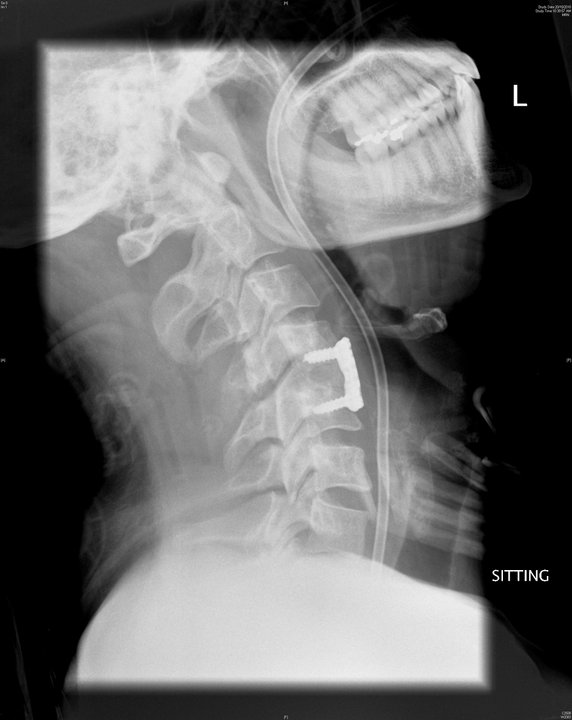For those of you interested in some of my more scholarly work, I recently had an article published in the Scandinavian Journal of Disability Research. Below is the abstract and introduction,
Abstract
Work, which plays such a prominent part in the narrative of human life, is central to a person’s happiness (or unhappiness). Because this is so, the fact that spinal-cord injury (SCI) tends to take a person out of the workforce (sometimes permanently) is recognised as a central part of post-injury loss. This paper draws on the insights of the virtue tradition and the discipline of positive psychology, to explore the notion of happiness (well-being) and its relationship to the vocations of people with SCI. In particular, it describes the virtues that can contribute to a person’s capacity to obtain and sustain employment. This includes virtues relating to dependency and independency, as well as the role of hope, optimism and the like. It concludes with a brief discussion of the contribution that people with SCI can make to the culture of the workplace.
Introduction
The relationship between work and happiness has always been ambiguous. We spend most of our lives either preparing for work or being at work, and so it is an activity that comes to frame our identity. Often, we begrudge the amount of time we are forced to give to our jobs, which can be stressful or tedious, exhausting or boring, too complex or meaningless, or all these things at once. The workplace is nearly always political, and we are never paid enough for what we give or for what we put up with. But where would we be without work? The civil rights movement and feminists have understood the significance of work, of equal access and equal pay. The central place that work holds in our lives is not merely tied to the (false) assertion that money brings happiness, although we do need to earn enough to pay for necessities and the small pleasures of modern life. More substantive, however, is the meaning that work provides. Happiness transcends the ups and downs of day-to-day life in the marketplace and is built upon the story of a life; a narrative made up not only of family and friendship but also of our contribution to the world. Whether our labour is paid or voluntary, that contribution is generally accomplished in and through our work.
What, then, of those who cannot work or, at least, tend not to? This paper examines the contribution of work to the well-being of people with a spinal cord injury (SCI). It is exploratory in nature, seeking points of convergence between empirical socio-scientific studies, the virtue tradition (with its insight into dependency), and the conclusions of positive psychology. This unusual conflation requires some explanation before we come to the heart of the argument being made – which is that the “happiness” of people with spinal-cord injury is connected to their work and to the virtues (especially virtues of dependency and independency) that frame personal well-being and success.
…
and so I ramble on. For those who would like to read the whole article (draft version prior to editorial amendments and publication), it can be downloaded on the following link:
for those of you looking for the published article (especially for the purpose of citation), it is available:

5 Comments
Deb
August 10, 2013 at 11:19 amsounds good Shane, thanks for sharing. I will read the full article later (library computer time limit!)
I also came across this article with research suggesting that having a job where you are not engaged is worse than having no job at all! http://businessjournal.gallup.com/content/163700/gbj-disengagement-worse-engagement-marco-nink.aspx?utm_source=email&utm_medium=082013&utm_content=morelink&utm_campaign=newsletter
I’ve had the experience of preferring no job to a job that wasn’t a good fit….and I’ve also coped by deciding I could tolerate a badly-fitted job only part-time, so I can still spend the majority of my life doing things that fit. I wonder though, whether my discontent with some jobs is partly fuelled by a modern expectation that we will find work fulfilling and engaging – not draining and demoralising. Or perhaps it’s the fact that I have had some jobs which have suited me so well that I have trouble accepting less-well-suited work. Another factor could be the way our lives are generally quite rushed and disconnected….if we don’t feel connected at work, where will we feel connected?
Hope I haven’t wandered too far off topic….
Shane Clifton
August 12, 2013 at 9:06 pmnot all the topic at all Deborah. I think you are definitely right. If you are in the wrong work, it can be horrible. Since we do spend so much time at work, though, we should reach for the ideal.
Shane Clifton
August 12, 2013 at 9:07 pmalso, interesting link – thanks to sending it.
Britt
August 12, 2013 at 8:45 pmHi Shane- I just came across your blog and was happy to see this post– I am co-founder of SPINALpedia.com, a website that shares user-generated videos filtered by mobility to help more people with paralysis adapt faster and do things like get back to work. I hope you’ll check it out! Thanks and all the best, Britt
Shane Clifton
August 12, 2013 at 9:03 pmI do keep up with SPINALpedia.com– excellent site. Thanks for stopping by.